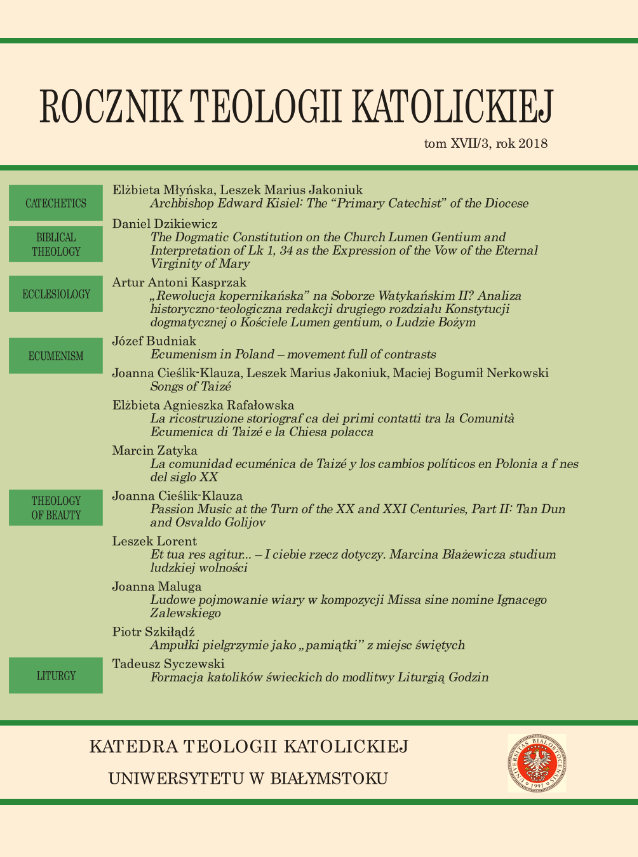Processus brevior coram Episcopo – Czy każdy biskup jest kompetentny do wydania wyroku stwierdzającego nieważność małżeństwa w procesie skróconym?
Processus brevior coram Episcopo - Does any bishop is competent to issue the sentence about the nullity of marriage in the briefer matrimonial process?
Author(s): Kamil KrakowskiSubject(s): Christian Theology and Religion, Law, Constitution, Jurisprudence, Theology and Religion, Canon Law / Church Law
Published by: Wydawnictwo Uniwersytetu w Białymstoku
Keywords: bishop; judge; briefer process before the bishop; reform of marriage process; Pope Francis; sentence; nullity of marriage; particular Church; diocese; biskup; sędzia; proces skrócony; wyrok; diecezja
Summary/Abstract: The Pope Francis’ 2015 reform of declaring the nullity procedures introduced a new process which is briefer than the ordinary process and have brought the followers closer to the church structures. The new form of this procedure has contributed to it considerably: briefer process – processus brevior. The Supreme legislator appoints a bishop the sole competent person to make a judgement within this process. The purpose of this article was to indicate the entities competent to perform the function of a judge in the briefer process. The fundamental question was this: is the ordination of a bishop a requirement to hold such a function? and thus whether every ordinated bishop may be iudex in the processus brevior. Another question was whether a clergyman who was not ordained may conduct such a process. This article shows that the legislator’s will, despite the nomenclature used in Motu proprio, is completely different. The Bishop of Rome has linked the functions of a single judge in the briefer process to the office of the head of a particular church. It shows that the iudex function in processus brevior is not of sacramental nature. A particular church is above all a diocese headed by a diocesan bishop. The legal order in the Latin church anticipates that other territorial and personal structures are equal to a diocese. Their governors are equal by law to a diocesan bishop. If they have judicial powers in scope of marriages, they are competent to conduct a briefer process. In some cases the governors of the particular churches, which are equal by law to a diocese, are not elevated to the rank of a bishop. Not being ordinated to a bishop, however, does not make them incapable of being iudex in the processus brevior coram Episcopo!
Journal: Rocznik Teologii Katolickiej
- Issue Year: 17/2018
- Issue No: 3
- Page Range: 171-186
- Page Count: 16
- Language: Polish

